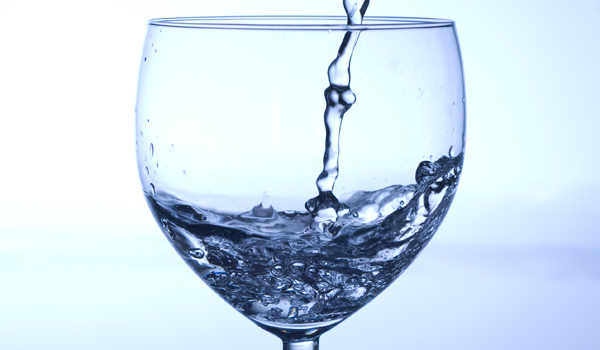
Does Pure Water Exist?

It seems like so-called pure water is very important to people. Bottled-spring-water brands put the word "pure" before "fresh" and "clean" in their advertisements. Water-purifier companies make billions of dollars all over the world promising to cut anything but H2O out of tap water. There's even a whole branch of alternative medicine built on imagined, seemingly magical properties of superpure water.
Here's the thing, though: Pure water doesn't exist. Or, at the very least, it's not really possible on Earth.
May Nyman, a chemistry professor at Oregon State University, told Live Science that water sucks up ions too readily from the surrounding environment to allow for truly pure water.
"Absolutely pure water doesn't exist," Nyman said. [Album: Stunning Photos of Antarctic Ice]
Water really "likes" to dissolve other substances inside itself, she said. That's because water molecules have strange Mickey Mouse shapes, with two hydrogen nuclei at one end and an oxygen nucleus at the other end, each with different electronic charges. Water molecules use those charged hydrogen bonds to interact and cling to one another, but they also cling to any molecule that approaches them. That makes it very likely that water will dissolve a bit of any object it encounters into itself.
And the purer a sample of water gets, the more strongly it will try to dissolve ions from any object it encounters.
That limits humans' ability to generate pure water, because at a certain point it will start to dissolve the walls of its container.
Sign up for the Live Science daily newsletter now
Get the world’s most fascinating discoveries delivered straight to your inbox.
One widely-cited claim in chemistry circles pertains to Lake Baikal in Russia, which is teeming with special filter-feeding shrimp that eat organic matter, removing impurities from the water.
"In the '90s, it was proclaimed that Lake Baikal had such pure water that if you were to take a glass of this water, the water would start to etch the glass," Nyman said, "because water likes ions, and it would just take the ions right out of the glass into solution."
Nyman said that this affinity is too powerful for scientists to fully overcome even in sterile laboratory environments. Anything a very pure sample of water encounter, like a bit of dust or a plastic container, she said, will leave behind traces of itself in the water.
Very few situations require totally pure water. That's why the tap water in most (though not all) places in the U.S. is totally safe to drink, even though the taste may vary. And even for scientific projects that require very clean water, Nyman said, it's easy to distill water to the point that the few impurities that remain don't mess anything up.
But perfectly pure water? It doesn't exist.
Originally published on Live Science.











